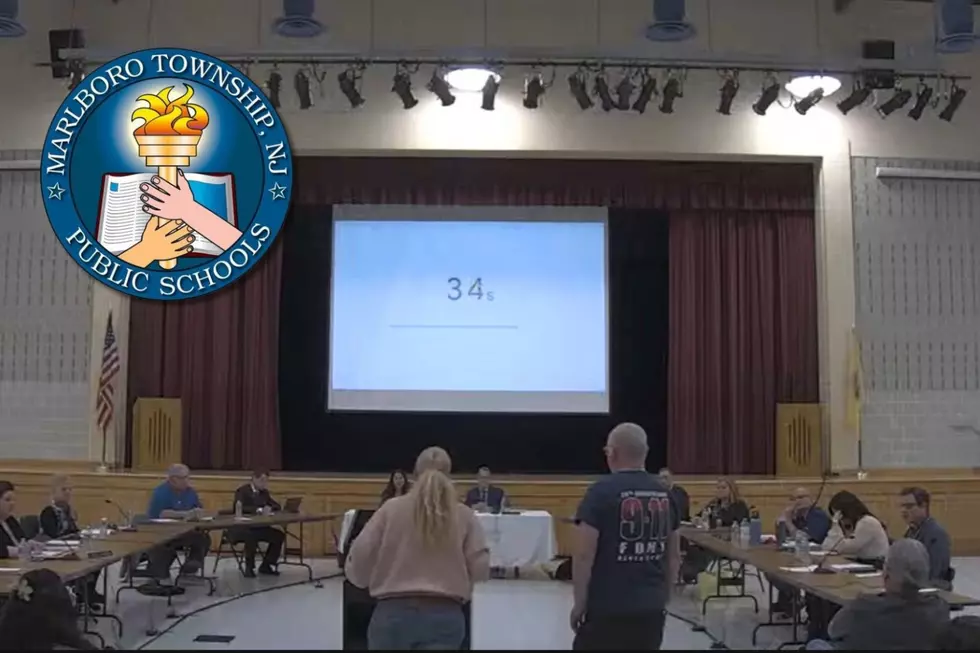
Heard of the Blue Whale? A New Teen ‘Game’ Prompts Concern in NJ
There is growing concern about a dangerous new “game” circulating on social media being referred to as the Blue Whale Challenge.
It encourages young people to perform various tasks, and then after 40 days, take their own lives. At least two suicides in the United States have suspected links to this online challenge.
According to Phyllis Alongi, the clinical director of the Society for the Prevention of Teen Suicide in Freehold, when a young person is contemplating taking their own life, because of something on social media or for another reason, there are almost always warning signs and signals that parents and loved ones should be aware of.
She said risk factors can include:
• An existing mental health issue such as depression or a personality factor like aggression or anger, or impulsivity or previous attempts
• A family history of suicide, exposure to suicide, access to means, any stressful environmental factor, such as loss or trauma, or bullying
• Any serious chronic pain issue or substance abuse problems.
Alongi noted research shows many times there are multiple reasons why someone would contemplate or complete suicide, “that come together like a perfect storm.”
She also pointed out the adolescent brain is not fully developed, and problem solving skills are lessened.
“They don’t possess the same fine-tune reasoning as adults do, so it’s very difficult for teens to make quality decisions when they’re faced with intense emotional pain.”
She stressed it’s important for parents to be familiar with suicide risk factors “so that they can feel confident and competent when they address their teens and have those difficult conversations with their adolescent loved ones.”
And the warning signs of possible suicidal thoughts are also important.
She said her organization uses the acronym FACTS, which stands for feelings, actions, changes, threats and situations, to help parents remember the warning signs of suicide.
According to Alongi, parents should be aware of :
• Any change in feelings, expressing hopelessness about the future
• Actions, displaying severe or overwhelming pain or distress
• Changes showing worrisome behavior, withdrawal from friends, isolation, changes in social activity, changes in mood, like anger and hostility increasing, or any changes in appetite or sleep.”
• Threats like talking about, writing about or making plans for suicide, and that includes anything online or in text messaging, any kind of social media.
• Difficult life situations.
“Oftentimes, experiencing stressful situations including loss, grief, moving, creating any kind of situation that a teen would be involved in that creates some kind of humiliation, being involved in getting in trouble at home or at school or with the law — these kinds of situations can serve as triggers for suicide.”
If parents notice these signs, they have to talk to their child and express concern about what they’re observing, even though that may not be easy.
“Oftentimes parents feel like, If I talk to my child about suicide, am I planting the idea in their head? And that’s the No. 1 myth,” she said.
“Talking about suicide really can be very relieving, and for someone who is contemplating or having ideation, it really gives them an outlet to then start that discussion.”
She stressed it’s important for parents to know what their kids are watching, how much time they spend on technology and social media, to monitor what shows they’re watching, where is the laptop, and know who they ‘re talking to.
“We need to monitor our youth, we need to know who they’re friends with, what video games they’re playing and supervise their screen time,” she said.
If a child tells a parent they are contemplating suicide, she said parents must be prepared to seek professional mental health.
“If you or anyone you know is struggling we would encourage them to call the national suicide prevention lifeline or textline, and the lifeline is 1-800-273-TALK, or 8255.”
She encouraged parents to get familiar with the local mental health agencies and private practitioners in their area.
“Ask directly about it, be calm, try not to be judgmental about it. It’s very difficult but like put aside your own feelings and attitudes.”
She pointed out that’s important because those feelings will come through in a discussion and possibly alter frank discussions.
“We want kids to feel comfortable talking about this with us, but we also want to be prepared if they say yes, so arming yourself with resources is very important.”
More information is available at the Society for the Prevention of Teen Suicide website, www.sptsusa.org.
More From WPG Talk Radio 95.5 FM










